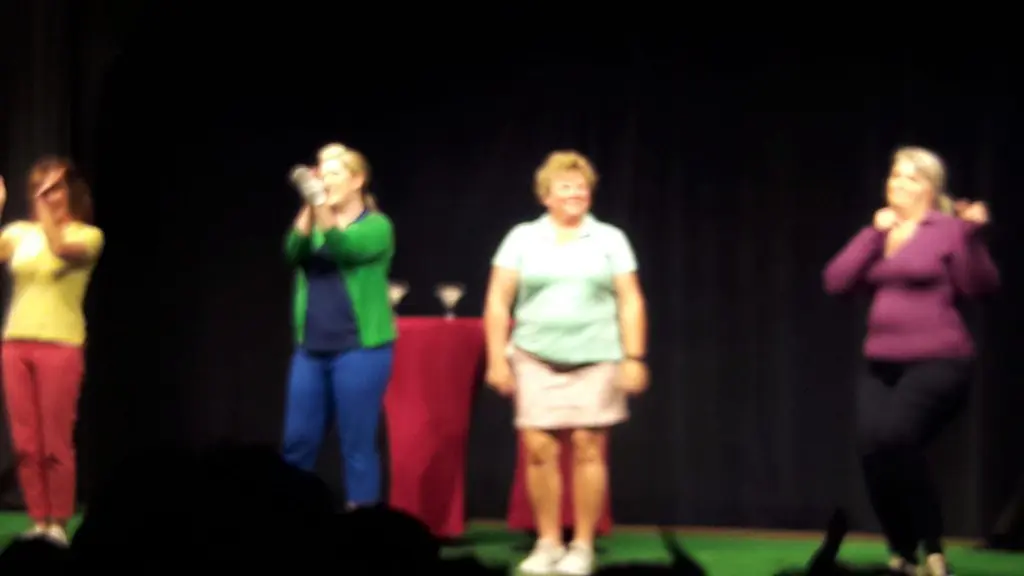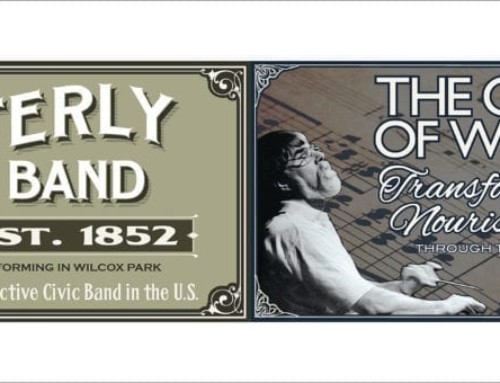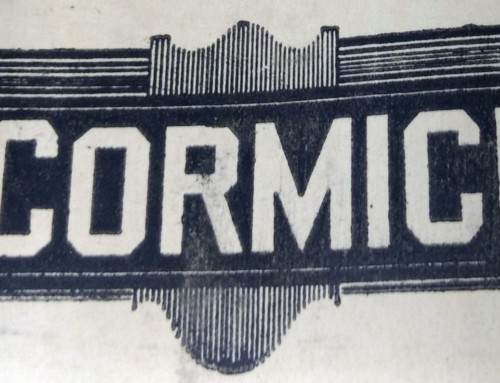Four ladies play golf 18 holes of golf with each other in a weekly ritual for 14 years. When one of the women passes away suddenly, the remaining three invite a “side friend” to take the departed’s place and the ensuing golf game, with each of the 18 holes (plus a post-game drink) a scene in the two-act production. Thus is the structure of The Ladies Foursome, now playing through June 17 at Granite Theatre. The show was written by Canadian playwright Norm Foster who had previously written another play in the late 1990’s titled simply The Foursome, with a similar set up of golf as a backdrop for conversation, but in that show, the game was played by men.
It is not required to have seen The Foursome to fully follow and understand The Ladies Foursome, as the ladies version is not a sequel or in any other way creatively dependent on the first piece.
I found it very interesting to see golf represented on stage in a play and even more so women’s athletics represented in a theater environment. The four characters represent a gang of different-but-not-so-different women, with a group aesthetic in the same ballpark of what we’ve seen in TV shows like The Golden Girls, Sex and The City and Living Single.
They talk straight to the heart with little room for subtly or politeness, at times hurting each other’s feelings but most usually with a quick apology and loving encouragement.
The fact that one of the women – Dory, played well by Michelle Mania – is new to the circle – presents the play’s most obvious opportunity for conflict and revelation. Several revelations come throughout the play, mostly to do with the various sex lives of each of the four women, how they relate to various male counterparts and their children, and what dreams each of the four have yet to accomplish.
In a nutshell, there is the world-weary TV news anchor Connie, the usual alpha female of the group, performed with zest and boldness by Paula Glen, in her first show at Granite. Connie has lost the love of her life and finds solace in the various arms of many a male suitor, which is the cause for several running jokes and riffs throughout the show. Next up is Margot, played by Denise Lacharite, with a natural warmth and self-depreciating humor.
Lacharite’s Margot is perhaps, overall, the most down to earth and like-able of the quartet, suffering through a strained relationship with her daughter and bordering on alcoholism. The character of Tate, played by Crystal Weeks, starts off very strong, but after the second hole or so, fades a bit into the background, only to have a bit of a stirring comeback of sorts late in the show.
Dory’s bold challenge to Connie to play the golf game for money (the game was originally set up to be a tribute round for their deceased friend) would seem to be a set up for a deeper quest to take over the leadership role of the group. Unfortunately, that never really develops as it seems the playwright opted to keep this a good-natured comedy, which is probably fine for the majority of the audience, but others, like myself, may have preferred a bit of the old “raising of the stakes” (tension, conflict, etc).
There is plenty of sharp-witted barbs between the four, with running jokes, that are humorous – and at times – loaded – but the play stays on the safer side of the fence for the most part. This, of course, is because of the actual writing itself.
Indeed, the Granite program shares a quote from the playwright Foster, as having stated, “I never set out with a monumental purpose in mind. I’m not trying to teach an audience a lesson or pass along some profound message, because I don’t think I’m qualified. What I’m trying to do is make them feel a little better about this world, and that’s not easy these days.”
I would personally encourage Foster, and any playwright, to put aside false modesty and take on the challenge of attempting a higher purpose with their playwrighting. After all, it’s not often you can get a few hundred people to gather without smartphones or devices for a few hours, so why not challenge yourself – and the audience – since, presumably, the theatre audience enjoys a good “profound message” once in a while…? Just a thought.
Overall, there are enough insights and plenty of chuckles to be had with this show and I especially enjoyed how each scene started with an on-stage notation of which “hole” we were on, which was a really interesting theater device in keeping track of all the action.
Indeed, The Ladies Foursome is a crowd favorite, earning a raucous, mostly standing ovation the night I attended. Women especially in the nearly sold-out show on Friday night, June 8, were vocal and appreciative of the cast’s comedic timing and sensibilities and the show’s timely pace. One lady in the lobby was heard asking another woman, “In your group, which one are YOU?” The response, “Let’s not go there!” Certainly, this is the same appeal that the aforementioned TV shows like Sex and the City also had, in that audience members may find themselves gravitating in sensibility and/or sympathy to one of the characters more than the others.
The direction by Granite newcomer Anna Convery, the set construction and stage design (by Mel Jolly, Will Pereira, and Jimmy Pollitt), and overall production values are all top notch as usual at Granite. The real crowd-pleasing aspect of this show is that both the script and the assigned actresses serve the characters very well. It’s clear the actresses have done their homework to make these women come to life. Margot, Tate, Connie, and Dory will resonate as your neighbor, your friend, your mother, your sister, perhaps yourself. As we begin our summer deep in South County, Rhode Island Granite Theatre’s The Ladies Foursome is a pleasant and fun night out.
For advanced tickets, visit the Granite Theatre online box office.







